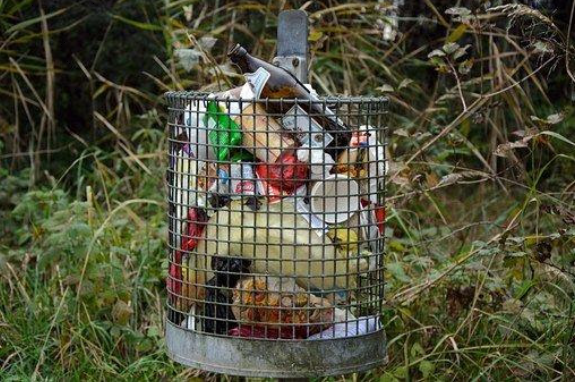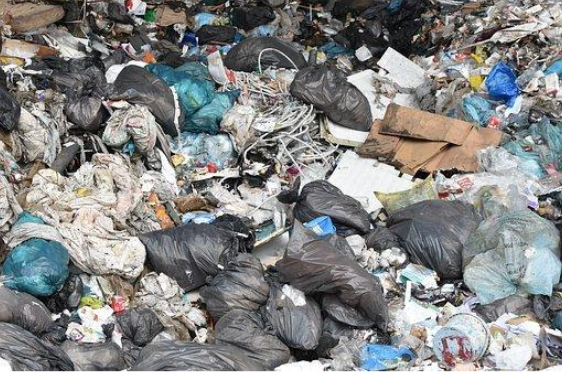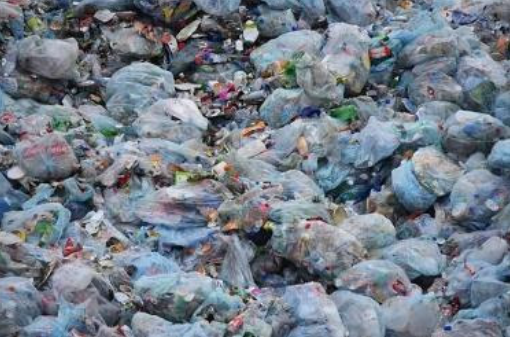Basic characteristics of municipal waste
A large proportion of daily generated junk around the world are things that each of us separates as unnecessary in our daily lives.
This is waste of the type:
- food and beverage packaging
- boxes
- plastics
- batteries
- biodegradable products
- paper
- fabrics
- glass
- metals
- ceramic
- nylons and others
Residents of large and small settlements dispose of their waste in designated areas. These are basically bins or rubbish bins that are specifically designed for household waste collection.

In many parts of the world unnecessary items and items are distributed according to their type of glass, metal, paper, textile or biodegradable, so that their further processing can be specified before they are transported.
Waste recycling is an extremely important process, that aims to make better use of the huge amounts of garbage that accumulate every day in different parts of the world.
Household waste are mainly those that end up in the trash from our home, office or manufacturing business, but not all of them can go directly to the gray containers on the street. The reason is that sometimes in our daily lives we deal with products that pose a risk to the environment and the population.
For example, a broken mercury thermometer, certain paints, oils, batteries, plastics or plant protection products must not be disposed of in the waste , which will be reworked for reuse in some form.
Therefore they are classified as hazardous waste and there are other specialized disposal sites so as not to contaminate soil, water or air.
Regarding biodegradable and processed products, such as food residues , paper, cardboard, glass or metal bottles, they are transported to regional landfills , from where they are redirected for reuse after treatment or destruction.

Household Garbage Management
Processes that are related to waste, regardless of their origin and characteristics, are subject to certain rules. These include their collection, transportation and processing.
All significant activities, the necessary documents and the sanctions for violating the defined norms are recorded in the current in Bulgaria – Law on Waste Management .

Not only in our country, but also worldwide, such a regulatory framework aims to deal with two huge problem for all mankind – how to reduce the huge amount of garbage that is generated daily and how to utilize it in the best possible way without allowing pollution of nature, without danger to biodiversity and the population.
Facing the global problem of dealing with tons of garbage, the developed population countries are encouraged in individual households, production facilities and daily human activities to dispose of less waste and to separate waste, to support their further recycling.
Because most of the unnecessary household items and substances can be safely invested in new production or reuse after a certain processing . As for biodegradable waste, it is the least polluting if it does not contain hazardous impurities.
The importance of recycling and separate waste collection
The ecological balance is increasingly endangered due to unregulated accumulation of waste in nature. The oceans are polluted with plastic objects and plastic bags, which, in addition to being difficult to degrade, are extremely dangerous for the existence of marine life and birds.
When poisonous substances get into the soil, the groundwater is automatically polluted and this damages the produce that people grow for their livelihood.
Garbage recycling is a possible way to overcome their harmful effects. Garbage recycling is extremely important not only for the ecological protection of the planet clean, but also for the saving of endangered species , which are becoming more and more more and more.
In parallel processing brings great benefits to the world economy. The economy is constantly in need of natural resources, but the earth’s minerals are exhaustible.
So after processing the appropriate waste, much of it becomes a new raw material to power the production cycle. In this way a balanced drawing of natural resources is achieved.
Unfortunately not all waste is recyclable. Some of it can degrade over hundreds of years if not processed. For this reason, the less garbage is excreted daily, the greater the chance to keep nature clean.
Global campaigns call for a more responsible attitude on the part of people towards packaging, chemicals, paints, plastics and materials that are non-degradable. The goal is to reduce their use.
Massively stimulated campaigns for separate garbage collection , as in large cities are placed different special containers, according to the type of garbage.
Composting also has an important bearing on keeping the world clean. Biodegradable waste is an excellent source for improving the quality of soil and plants, respectively.
All these measures are subject to the extremely significant attitude towards climate change, caused mainly by harmful emissions into the air.
Waste Management Companies
As the need for responsible and lawful waste management increases, increases the need for experts in the disposal of unnecessary items and substances. Such specialists are engaged by companies that professionally organize the complex process of waste recycling.
These are companies that, depending on the legal framework, carry out their explicitly permitted activities, after they themselves are found to meet a number of requirements.
Specialized companies have available equipment, bases, qualified staff to collect, transport and distribute different types of waste for further processing or destruction.
Household waste is generally disposed of in garbage containers. In large settlements, the collected quantities are transported daily in order to reach the regional landfills created for this purpose .
They are stored or processed there. Trained staff are responsible for their safe storage without risk of environmental and human pollution.
Companies that are involved in garbage management work with individual clients and with other companies, according to their specific tasks. Very often the business is faced with the problem how to organize the disposal of separated and unnecessary products from the production activity.
To this end, companies with trained people can be hired to prepare all the necessary documentation, to coordinate the follow-up with national legislation and to provide logistical assistance.
Another area of assistance is the implementation of specialized transport for waste within at home or abroad, where they can be recycled using high-tech systems. Companies with similar activities also support various projects. in the field of ecology and can provide a wide range of services.
